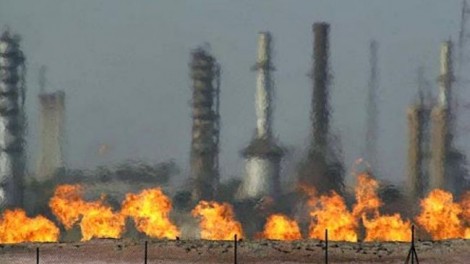
By Arian Mufid:
For the last ten years Kurdish politics has suffered great corruption in the hands of the Kurdistam Regional Government (KRG) leadership. Here we are today with yet more evidence of the results of the mismanagement of our leaders, with the wages and salaries of Kurdish civil servants not being paid for the last six months. This is in addition to the turbulence in oil prices which has hit the Kurdish economy particularly badly and has already starting to affect the economic marketplace. Kurdish media newspapers and TV have become dominated by the stories of ordinary people suddenly desperate for food and cash. As a result, teachers have come out onto the streets protesting and boycotting classes and local council staff are protesting about not getting their wages.
Our supposed leaders and their political system have been shown to be more useless than ever before. The Prime Minister Nichevan Barzani and his deputies have issued several decrees in attempts to solve the crises, one such example being to reduce the salaries and wages of government staff by almost 50%; an idea which seems strange and problematic. Kurdistan’s economic structure has not been modelled upon any successful structure in the international economy. As an example, in the south of Kurdistan we have 1.4 million civil servants which has cost the government almost $ 850 million per month. The wealth and income of oil over the last decade has not made the nation of the south of Kurdistan any better off on a long-term permanent basis. The KRG leadership and President of Kurdistan are desperately seeking loans and help from neighbouring countries such as Turkey, Saudi Arabia, etc. Ordinary people are worried at the prospect of the Peshmarga forces running out of wages and salaries and this would result in great uncertainty and a lack of confidence that they would be protected from further attack by IS. Most businesses and Kurdish traders have retracted their money and transferred funds abroad, resulting in further collapses in the market. The residential and commercial markets are collapsing, having already been reduced in value by 50%. In reality the lenders in Kurdistan cannot force borrowers to pay back funds due to the general dire financial situations the majority of people are suffering. Similarly, landlords cannot ask their tenants for the money. Suicide rates amongst teachers and contractors are increasing, as well as psychological problems generally amongst the masses; bankruptcy is killing people. Every week instances of suicide are reported. The huge increase in unemployment everywhere is resulting in mass migration abroad and the media reports show increasing numbers of Kurdish migrants dying on a daily basis during their crossings to the Greek Islands, with many becoming stranded in the water. There is no evidence in this current climate of real attempts to solve the deep gloom affecting the market and the people of the South of Kurdistan.
All these developments raise the question of where everything is heading; the KRG’s plans to turn Kurdistan into another Dubai are doomed to failure and have not produced a nation similar to those in Saudi Arabia and the Gulf States. Foreign workers and skills have dominated most Kurdish sectors from communication to construction. Any good quality bridges and roads in the south of Kurdistan have been created by foreign, generally Turkish and Iranian, companies. The universities and other institutions have not produced the necessary good, qualified doctors and engineers for the country to rely on. As a result of all of this the Kurdish market in the south of Kurdistan has relied almost 100% on oil income and has ignored the potential of the main base of agriculture to meet local requirements. Inflation has soared by almost 300% since the market of Kurdistan was adopted, and the fault lies entirely with poor planning by the KRG.

The KRG has relied almost 100% on oil income and ignored the potential of agriculture to meet local requirements.
.jpg)


